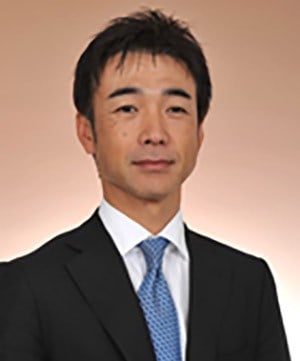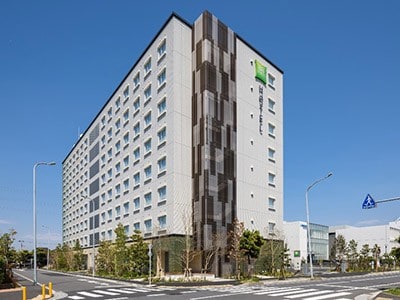
LaSalle’s Kunihiko Okumura see opportunities in Chiba prefecture
LaSalle’s latest Asia opportunity fund has acquired a hotel near Tokyo Disneyland. The real estate investment group announced the investment in the 216 room, eight-storey asset as an opportunity to profit from a Japanese tourism boom as inbound traveller numbers increase dramatically and the Tokyo 2020 Olympics guarantee a period of exceptionally high demand for hotel space.
The newly completed Hotel Ibis Styles Tokyo Bay, which was purchased by the fund on 19 June, is located in Urayasu City, Chiba Prefecture. LaSalle Investment Management, an independent subsidiary of NYSE-listed Jones Lang LaSalle, announced the deal on its corporate website. No price was reported.
Investment Manager Bets on Disneyland
“Japan holds many opportunities for us and Urayasu, Chiba, in particular is experiencing strong growth for its hospitality sector, underpinned by a booming domestic tourism market and its growing reputation as a resort destination,” Kunihiko Okumura, head of acquisitions for LaSalle Investment Management in Japan, commented in a company statement.
LaSalle’s enthusiasm for Japan’s hospitality assets comes after more than 28 million visitors arrived in the country in 2017, double the 2014 figure. The Tokyo Olympics are seen as an additional and significant positive with some 40 million people expected to visit the country in 2020. Hotel consultancy HVS calculates revenue per available room (RevPAR) growth in Tokyo at 7.8 percent in 2016 and 7.4 percent in 2017. It estimates 8.1 percent growth in the industry in 2018.
The acquired property, which is to be managed by Accor Hotels and will open from 2 July, is situated a 15-minute walk from Shin-Urayasu Station, putting it within 25 minutes travel of Tokyo Disneyland. Tokyo Station is about 35 minutes away and Narita International Airport is a 1.5 hour journey.
Other factors may also support the market. A new minpaku law has gone into effect and will severely restrict home-sharing arrangements such as Airbnb. Under the law, the renting of private accomodations is limited to 180 days a year, and hosts are required to register with the land ministry. While the new law is meant to help in the development of capacity for the Olympics, it has had an immediate and negative impact on home-sharing and is seen as benefiting hotels.
Despite these positive signals, some concerns have been raised about oversupply in the market as both domestic and foreign groups pour money into projects ahead of the 2020 Olympics. Mizuho Research Institute believes that the country will have a surplus of rooms for the event.
$1.2B Opportunity Fund Nearly 40% Invested

The Hotel Ibis Styles Tokyo Bay is due to open in July
The real estate investment manager acquired the hotel for its LaSalle Asia Opportunity V (LAO V) which closed on $1.15 billion in new investment earlier this year from some 20 institutional investors. According to LaSalle, LAO V seeks mispriced assets where value can be realised through repositioning or redevelopment. Target markets include Australia, China, Hong Kong, Japan, Korea and Singapore. Given its equity base, the fund has the capacity to purchase an estimated $3.3 billion of assets.
As of early 2018, LAO V had deployed about 37 percent of its funds and made investments in Tokyo, Osaka, Nagoya, Singapore, Shanghai and Hangzhou. Purchases include offices, retail space, hotels and logistics facilities. In April of this year, LAO V bought Shanghai International Plaza, a 31-storey commercial building in the mainland financial capital.
This latest acquisition adds to LaSalle’s $5 billion in assets in Japan, amounting to more than eight percent of the investment management company’s $60 billion global portfolio. In late 2017, LaSalle closed its fourth Japan logistics fund, JFL IV, raising $350 million.
Japanese Hotels Pull in More Investors
International investors have been a force in the Japan hotel sector for some time. Early acquisitions such as Goldman Sachs’ buyout of the Daiei Group’s hotels in 2003 helped break the build-and-hold mentality that had long dominated the business. J-REITs, introduced in 2001, were also significant in the opening of the market.
Although interest waned after the 2008 global financial crisis, deals are once again on the upswing with investors from other parts of Asia playing a central role.
Earlier this week, Singapore-listed Ascendas Hospitality Trust announced its acquisition of three newly built hotels in Osaka for a total price of about 11.24 billion yen ($101.6 million), adding to a pair of hotels that the listed trust already holds in Osaka and Tokyo. Just last year Singapore’s GIC acquired a 51 percent stake in the 1,016-room Sheraton Grande Tokyo Bay hotel for $463.6 million.
Global investors are also looking more closely at opportunities in Japanese hotels with Bain Capital having purchased Ooedo-Onsen Holdings for an estimated ¥50 billion ($454 million) in 2015 and UBS Asset Management having last year initiated a $400 million programme for investment into hospitality assets in Tokyo, Osaka, Nagoya, Fukuoka and Hokkaido.
Leave a Reply